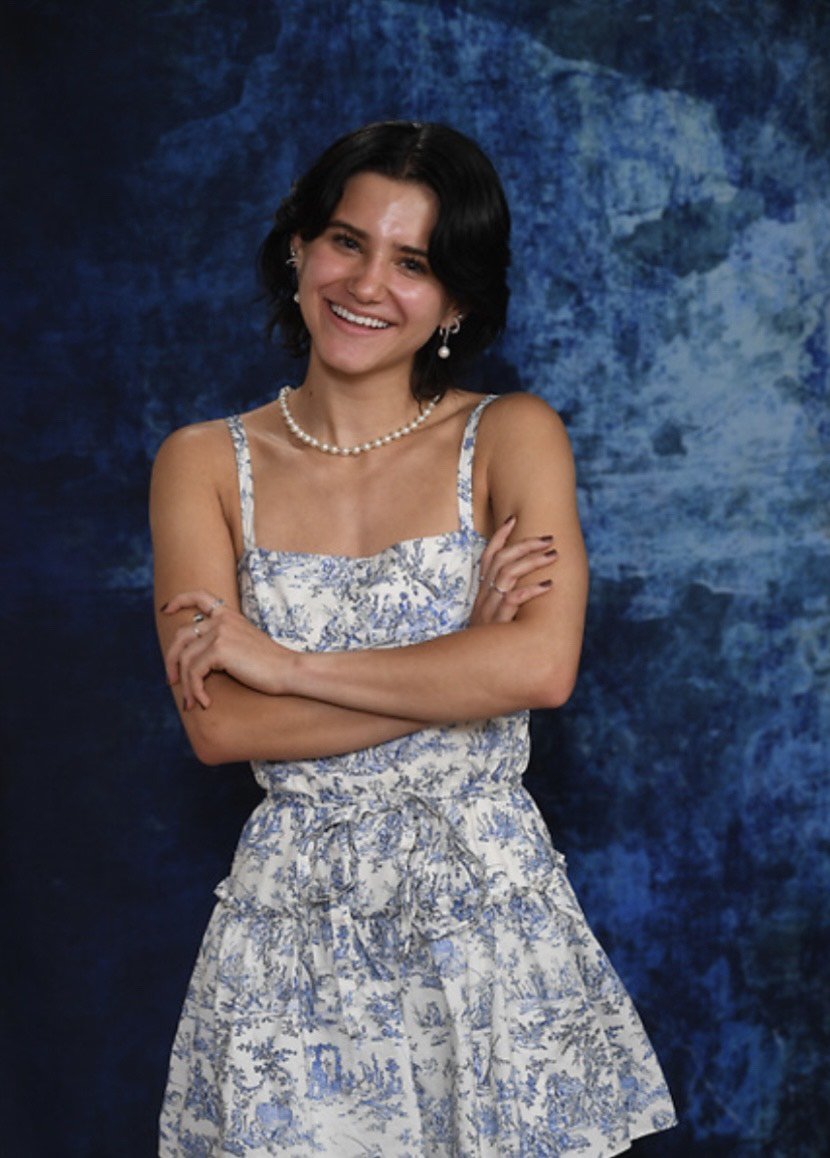“The Last Supper” by Sydney Guida
The Last Supper
It is the week before you go to college. Grandma is in the kitchen with no windows again, cooking pierogi and caramelized onions for dinner. When the pot gurgles, she plops the dough into the boil. Then she moves away from it and comes to you, her cheek pressing warm to your cheek, saying, “I miss your babyness.”
Sometimes we invent words, because what we’ve been given isn’t enough. Sometimes we manipulate language until its elbows are crooked. Sometimes you wish we wouldn’t. What does Grandma wish? I’m glad you asked. Grandma wishes she saw you more. She wishes this kitchen had windows, to let the hot air out, but she has lived here since she was a girl and raised five of her own girls here. You sleep in one of their bedrooms when you visit. She wishes she wasn’t so sick all of the time. She wishes she knew how to keep her money to herself, but she cannot stop giving it over. Her body sags into a wooden rocking chair below a painting of the Last Supper (she has a knitted tapestry of it as well, just over the dining table), and she wishes the seat wasn’t so cold. Her hands are thick and calloused. Grandma wishes her rings still fit her fingers and that the nerves in their tips would animate from their numbness, so she could feel the spray of the boiling sink water. So she could press her fingers to your forehead and feel the warmth there. All the while, you’re thinking, If there was a fire, where would I go? Where would I jump? There’s no goddamn window.
August is running down your forearms, and you don’t know how to talk about her without sounding like you’re trying to start a religion, and you’re thinking about your brother, who brought you down to the abandoned quarry and fished earlier today. The hook went through the mouth of a bluegill and punctured its eye, so it bulged from the socket like a button. You’re thinking about its stare, how it looked up at your brother like he meant it. He didn’t. Forgive him; he didn’t. You spare her this and instead tell her that they’re selling venus flytraps in plastic containers at Walmart; you tell her about the tomatoes in your garden, splitting from the rain; she tells you that pennies become hammers in washing machines, so empty your pockets. Don’t water your succulents on any wooden surface because the liquid will warp it. Make sure you eat three meals a day but never the same meal twice. Be kind to professors. Pies means “dog” in Polish, “feet” in Spanish, and something sweet and fruit- and custard-stuffed (she will never bake for you again) in English. Homonyms, across tongues. Something, something, Jesus Christ . . . Something about God. These are things you need to remember, if you’re leaving. August is melting, and you bowl your hands to catch all of it, pushing summer wax together to form something amorphous, wet, and half-spoken, like pierogi spines. You want to ask her what’s worse, in situations like these: Leaving and knowing that you will be back, or leaving and knowing you never will be?
Your babyness, it’s here somewhere. You can feel it. It’s outside, butterflying inside the copse where you built your “wolf den” out of oak limbs and candied faith. It’s dangling from the coatrack. It’s stuck to her kielbasa pans. It’s upstairs, and then it rolls down the carpet. It’s in the basement, shouldered to the broken-faced doll named Minty that she keeps begging you to take home because it was yours when you were a baby and because it is wrapped in the quilts you were once swaddled in and because she has nobody to hold it anymore, but you don’t want it because you don’t know where you’d put it. You consider your babyness and think, I wish I could give it to you. I wish you could take it. But do you even want to keep it?
Give her time. Every time she sees you, she thinks it will be the last. This may very well be the last.
Do you think about it?
Sydney Guida
Sydney Guida (she / her) is a 17-year-old from Pennsylvania. Her work has additionally appeared in The Diamond Gazette and Literary Forest Poetry Magazine. After high school, she plans on pursuing a career in journalism.
Headshot: Purdon Photography
Photo Credit: Staff


